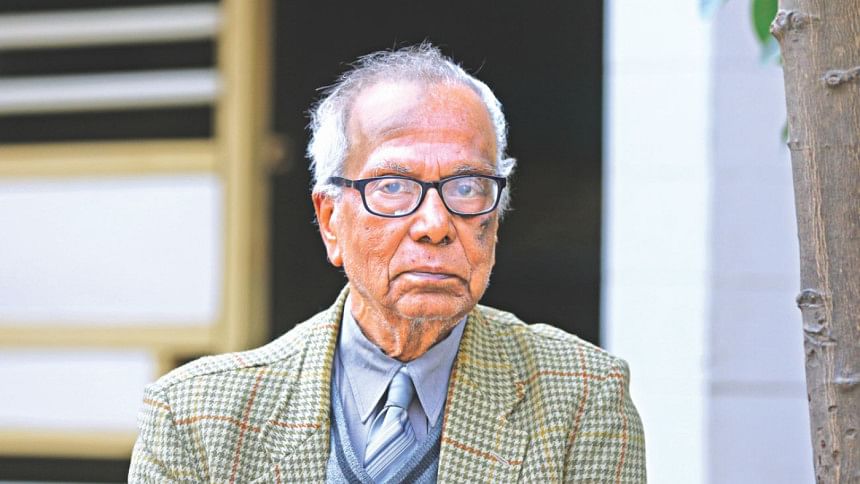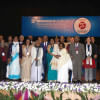Prof. a.m. Harun-ar-Rashid

Prof. A.m. Harun-ar-rashid is a distinguished physicist and science writer. He was born on May 1, 1933 in a remote village in Barisal district where his father, Late professor Moksud Ali, A.D.P.I, was the first person to have received postgraduate education in science. Prof. Rashid, who never stood second in any examination in his life, obtained B.Sc. (Hons.) degree in Physics from the University of Dhaka in 1953 standing First in the First Class and M.Sc. degree in Physics in 1954 again standing First in the First Class. For his outstanding academic achievements, he received prizes and honours throughout his academic career, including the Raja Kalinarayan Scholarship awarded by the University to the most outstanding graduate every year.
Prof. Rashid obtained the Ph.D. degree in Theoretical Physics from the University of Glasgow in 1960 working under Professor R.G. Moorehouse and Professor B.H. Bransden. He participated in the first Scottish Summer School on “Dispersion relations” in Edinburgh in 1960 as well as in the first ever Summer Seminar on Theoretical Physics held at Trieste in 1962 organised by Professor Abdus Salam. Prior to 1962, Professor Rashid's interest was in photoproduction theory of vectormesons in which experimental work had not yet started; with Professor MJ Moravcsik, he was able to formulate the first consistent phenomenological theory of spin-1 meson photoproduction including its multiple structures. But soon, under the strong influence of Professor Salam, he started working on group theoretic symmetry schemes.
The Liberation War of Bangladesh in 1971 posed for him a serious setback; for a long time, he was rootless as he resigned from his job at the University of Islamabad where he was then a Professor of Physics. However, it took him some time to settle down in his country in the University of Dhaka and there, during the three years of 1974 to 1977, he produced with his students some outstanding work in solid state Physics.
Prof. Rashid has published about 150 scientific papers, books and other publications.
He received the Ekushey Padak for Education in 1991, Independence Day Award in 1999, and the best Science Writer Award by the Government of Bangladesh in 2005. He was a Visiting Professor at top universities of the world including the University of California in Los Angeles in 1991 and University of Texas at Austin in 1975. He was Visiting Scientist at the Imperial College of Science and Technology, London; and the International Centre for Theoretical Physics, Trieste.
He was appointed Bose Professor, University of Dhaka in 1993. He was Fellow, Bangladesh Academy of Sciences; Member, the American Physical Society, Vice President, Asiatic Society of Bangladesh; and Fellow, Third World Academy of Sciences.
Prof. Rashid has devoted his life to the pursuit and promotion of science. He believes that science is the cumulative achievement of all that is best in man. Knowledge creation and knowledge deployment are fundamental to a knowledge-based society, he says. He has made several important recommendations for improving the quality of higher education in Bangladesh.

 For all latest news, follow The Daily Star's Google News channel.
For all latest news, follow The Daily Star's Google News channel. 




Comments